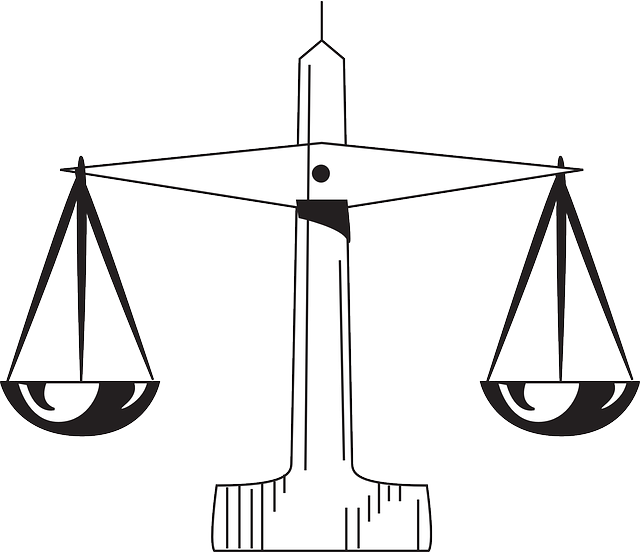In the UK, litigation documents require exacting translations due to their significant role in legal processes. Specialized UK translation services, adept at handling complex legal terminology and its multilingual interpretations, provide this critical expertise. They ensure that all parties, regardless of language proficiency, can fully comprehend and participate in legal proceedings with fairness and due process. The precision of these translations is paramount, as errors or omissions can affect case outcomes, potentially leading to miscarriages of justice. Both certified and specialized translators are essential, depending on the case's complexity and the need for a certificate of accuracy. These translation professionals must possess a deep understanding of both linguistic nuances and legal contexts to maintain the integrity of the litigation documents, which are vital for successful dispute resolution within the UK's legal system. Case studies demonstrate their effectiveness in managing technical jargon and aligning legal language with diverse cultural frameworks, ultimately ensuring fair and just resolutions in international litigation matters.
navigating language barriers, legal translation precision, UK litigation documents translation, expert translations for legal disputes, certified vs specialised translators, cultural nuances in legal terminology, successful case studies, translation compliance.
In the complex arena of UK legal disputes, the precise and accurate translation of litigation documents is paramount. This article delves into the critical role of expert translations in navigating language barriers within the UK’s legal system. It examines the nuances between certified and specialised translators, the challenges posed by cultural nuances and legal terminology, and the importance of ensuring clarity and compliance in all legal documents. With a focus on litigation document translation services, we present a comprehensive overview that includes understanding your options for legal translations, the translation process, and insightful case studies showcasing successful outcomes facilitated by expert translation services. This exploration is essential for anyone involved in cross-border legal disputes within the UK, highlighting the indispensable nature of flawless language translation to achieve legal precision and fairness.
- The Necessity of Precision: The Role of Expert Translations in UK Legal Disputes
- Navigating Language Barriers: The Importance of Accurate Litigation Document Translation Services in the UK
- Certified vs. Specialised Translators: Understanding Your Options for Legal Translations in the UK
- The Translation Process: Ensuring Clarity and Compliance in UK Legal Documents
- Cultural Nuances and Legal Terminology: Challenges in Translating Litigation Documents for UK Legal Disputes
- Case Studies: Successful Outcomes Facilitated by Expert Translation Services in UK Legal Settings
The Necessity of Precision: The Role of Expert Translations in UK Legal Disputes

In the complex domain of UK legal disputes, the precision and accuracy of litigation documents are paramount. Expert translations play a pivotal role in ensuring that all parties involved have access to clear, accurate, and legally sound representations of the original content in another language. The stakes are high; legal proceedings rely on documentation that is free from ambiguity and error to uphold justice and protect the rights of individuals and entities alike. UK translation services specialising in legal translations provide the necessary expertise to convert legal documents with the utmost fidelity, ensuring that nuances in language do not compromise the integrity of the case. These specialists are adept at navigating the intricacies of legal terminology and its various interpretations across languages, a skill set that is indispensable in cross-jurisdictional litigation where the precise meaning of terms and clauses can be the difference between victory and defeat.
The use of professional UK translation services for litigation documents is not just a matter of semantics; it is a critical component of a fair legal process. In cases where parties are non-English speakers or where evidence is sourced from international locations, expert translations become a cornerstone for due process and equality before the law. These services ensure that all parties have an equal opportunity to present their case and understand the proceedings in their native language, thus upholding the principles of justice and transparency within the UK legal system. The involvement of certified translators who are well-versed in both language and legal context ensures that the translation does not introduce errors or misinterpretations that could skew the outcome of a case.
Navigating Language Barriers: The Importance of Accurate Litigation Document Translation Services in the UK

In the complex arena of UK legal disputes, the precision and accuracy of litigation document translation services are paramount. The UK’s diverse population and global business connections often necessitate the exchange of critical legal documents across language barriers. Litigation documents, with their intricate terminology and legal nuances, require expert translators who specialise in legal language to ensure that the intent and implications of the original text are faithfully conveyed. These professionals are adept at navigating the specific legal lexicon used within UK courts, ensuring that translations are not only linguistically correct but also legally compliant. This is crucial for maintaining the integrity of legal proceedings, where misinterpretation or omission of details can lead to significant complications and potential miscarriages of justice.
The role of professional translation services in the UK legal system cannot be overstated. They offer a critical function in facilitating clear communication between parties who may not share a common language. This is especially important when dealing with sensitive litigation documents, such as witness statements, contracts, and legal correspondence. The translators’ expertise ensures that these documents accurately reflect the original content, which is essential for fair proceedings and the administration of justice. By overcoming language barriers, these services enable all parties to engage on an equal footing, upholding the principles of transparency and equity within the UK’s judicial framework.
Certified vs. Specialised Translators: Understanding Your Options for Legal Translations in the UK

When navigating the complexities of legal disputes in the UK, the accuracy and clarity of litigation documents are paramount. The need for precise translation services is critical, as legal documents must convey the nuances of the law without ambiguity. In this context, choosing between certified and specialized translators becomes a strategic decision. Certified translators are professionals who have been officially accredited to translate documents for legal purposes. They adhere to strict standards and are often recognized by government bodies or legal institutions. Their work comes with a certificate that attests to the fidelity of their translation, making them ideal for situations where legal standing might be affected by the document’s contents, such as in court proceedings or for official registration.
On the other hand, specialized translators bring deep subject-matter expertise to the table. They are often bilingual experts with a background or experience in legal terminology and processes. While their translations may not carry the same certification as a certified translator’s, they offer a level of specialized knowledge that can be invaluable for complex litigation documents. Their familiarity with legal jargon and the ability to translate it accurately into another language makes them an excellent choice for intricate cases requiring a high degree of technical precision. Both options have their merits, and the choice between certified and specialized translators should align with the specific needs and requirements of your legal case in the UK. Whether for compliance with legal standards or for a nuanced understanding of the content within litigation documents, UK translation services provide the expertise necessary to navigate the legal landscape effectively.
The Translation Process: Ensuring Clarity and Compliance in UK Legal Documents

In the intricate realm of UK legal disputes, the precision and accuracy of litigation documents are paramount. Expert translations play a critical role in this context, serving as the linchpin for fair proceedings. UK translation services specialising in legal documentation ensure that every word is rendered with the utmost fidelity to both the source and target languages. This meticulous process begins with selecting translators who are not only linguistically adept but also well-versed in legal terminology, ensuring that the essence of the original text is captured accurately. These professionals undergo a rigorous vetting process to guarantee their expertise aligns with the legal standards within the UK’s complex statutory framework.
The translation workflow is a multifaceted endeavour, involving multiple stages to maintain clarity and compliance. Initially, texts are examined for context, nuance, and legal significance. This initial phase sets the foundation for subsequent steps, which include the translator’s precise rendition of content followed by peer reviews to validate the translation against the original document. Such scrutiny is indispensable in avoiding misinterpretations that could jeopardise case outcomes. Finally, quality assurance checks are conducted to confirm that the translated litigation documents comply with both legal requirements and cultural sensitivities, ensuring that they stand up to judicial scrutiny. This comprehensive approach underscores the importance of professional UK translation services in legal contexts, where precision is not just an asset—it’s a necessity.
Cultural Nuances and Legal Terminology: Challenges in Translating Litigation Documents for UK Legal Disputes

When navigating the complexities of legal disputes within the UK, the precise translation of litigation documents becomes paramount. The intricacies of legal terminology and the subtleties of cultural nuances present significant challenges that go beyond mere word-for-word conversion. UK translation services must employ experts with a deep understanding of both the source and target languages, as well as the legal context in which these documents are used. The legal language often contains specialized terms and phrases that hold specific meanings within the UK’s judicial framework. A mistranslation can lead to misinterpretation or even a loss in court, highlighting the critical importance of accurate translation services for litigation documents. Moreover, cultural nuances must be considered; what may convey a clear intent in one legal system could be misunderstood in another. Translators must therefore not only be linguistically proficient but also knowledgeable about the cultural aspects that influence legal interactions to ensure that translations are both accurate and appropriate for the UK context. This dual expertise ensures that litigation documents are accurately translated, maintaining the integrity of the original text while adapting it to conform with the expectations and standards of the receiving legal environment.
Case Studies: Successful Outcomes Facilitated by Expert Translation Services in UK Legal Settings

In the realm of UK legal disputes, the precision and clarity of litigation documents are paramount. Expert translation services have proven instrumental in ensuring that all parties involved in a case can access and comprehend the critical information contained within these documents. A prime example of the successful outcomes facilitated by such services is evident in a high-profile intellectual property case involving a multinational corporation and a foreign patent holder. The complexity of the technical jargon within patents, coupled with the legal terminology used in the UK, necessitated expert translation to bridge the language gap. The translated documents allowed for a seamless exchange of information, leading to a swift resolution that respected the rights of both parties.
Another case study illustrates the importance of cultural nuance and legal precision in translations. A UK-based company was embroiled in a dispute with a Spanish-speaking entity over a merger agreement. The translation service not only provided accurate translations of the contractual documents but also adapted the language to reflect the legal context of both parties’ home countries, ensuring compliance and fairness in the transaction. This careful handling of language nuances and legal jargon paved the way for an amicable settlement, demonstrating the significant role that expert translation services play in navigating the complexities of international litigation within the UK legal system.
In conclusion, the role of expert translations in navigating UK legal disputes is not merely a matter of linguistic equivalence but a critical component that upholds justice and legal clarity. The precision required in litigation documents within the UK legal system necessitates the engagement of skilled translation services to bridge language gaps without compromising on the nuances of legal terminology and cultural contexts. Whether opting for certified or specialised translators, the chosen service must prioritise accuracy, compliance, and confidentiality to ensure that all parties involved have a fair opportunity to present their case effectively. The case studies highlighted in this article underscore the value of expert translation services in achieving successful outcomes in UK legal settings, making it clear that this is an indispensable asset for any legal dispute involving non-native speakers.
